I am dreadfully tired from my first day of ‘field work’ [it was supposed to be an introduction…but turned out to be so much more…amazing!]…and so I couldn’t imagine not writing at least a bit about it before I am off to bed. Woke up at 6.30 to leave for the field for about 1hr 30min rough drive [I don’t think I have mentioned that the driving here is utterly ridiculous…no traffic rules apply, no lanes, not even directional flow of traffic really matters…it is more like bumper cars/motorbikes/bicycles/pedestrians…and peppered with potholes and bumps] so when we finally arrived we had a round of introduction with the three site officers, talking about our research aims, and the current status updates from the field [note: my research might have to change last minute…ahhh!…more on that later though…].
Then they wanted to show us the field…Keenjhar is quite a large lake, so we started off at 10am, planning to visit a number of villages, and CBOs [Community Based Organizations] groups, which is a clustering of about 5-9 villages with chosen representative board of the community. The first community we arrived to, had convened the CBO board to meet us, and give WWF an update of their progress…I was astounded…we met in an open room, were brought traditional Pakistani tea [yes Amanda, I felt like I was living Three cups of tea] and discussed the problems that plagued the local communities, of course translated from Sindhi to English by our site officers [however the Head Officer of the COB could speak near fluent English]. We were able to ask questions [although we had nothing prepared…] so it was broad based conversation about challenges and possible community based solutions. It was surreal, I was siting as one of three women in a open meeting room [with children peeking in the windows] and speaking with a community full of elders, internally bursting with hope that my meager MSc can do something realistic and useful. My mind was spinning what could I do, how can I research enough, write enough, do enough to make a tangible change this community can use. Their eyes staring through me, expecting that I, with my education from abroad can bring the answers, and I just want to show them that I am just here to facilitate the change they can accomplish through the amazing things they are already doing, like organizing themselves to speak against the Industries, the government. Overwhelming in the realization that I could never do enough…the best I can do is try, try to help this situation that I barely understand, grasping to theory imported from Oxford Press Publishing…wondering if it is even relevant as I listen about the political corruption selling off fisheries seed rather than filling the lake, about the Rangers taking over resources because they are the military and they can, listening to communities use foreign phrases that WWF has explained to them as buzzwords ‘mobilize’ ‘Ramsar site’ ‘sanctuary’ ‘conservation’. And that was just village one…7 or more to go.
But as it is 1am, and I have to be in the office early tomorrow, I will highlight some of the more salient moments [because there is no way I could explain how memorable the day actually was]. So after visiting the first village, having tea, talking with elders we visited a number of the village within that CBO community, one of which had recently received a solar panel with assistance of WWF as a ‘tradeoff’ for the conservation of reeds for fuel and monetary purposes…they were so excited. They showed us how is powered a light-bulb in their home…just one light-bulb, just one little energy efficient light bulb. I took photos [thanks Dad…the camera is beyond perfect], and at first the children were shy, but once I showed them how it worked they LOVED it…I even had a women come up to me and say ‘ok, you can take my photo now’ and smile. At the time, since this was the first village where I was interacting with the community and taking photos I didn’t realize how unique this actually was…upon reflection my photos are mostly children and men, that is because the women we arrive tend to stay indoors, and just peer out from their windows…privately. Additionally the main elder came up to me while I was taking photographs and their was a boy with a deformity on his face, and he told me that he took a picture of him on his phone and whenever he is in Karachi he shows the pictures to try and find doctors for the boy…he asked me then to take a photo…the boy was shy and embarrassed…my heart broke.
A little while later we went for lunch, it was outside on the opening of an adobe style building…outside because the power had stopped and the fan in the office/meeting room/living room. It was a traditional Pakistani lunch, and it was absolutely amazing, chicken [with local sauce], rice, and roti [naan bread]…one of the site officers had called in the morning to tell them we were coming for lunch…I am pretty sure the chicken was killed after the phone call. Lunch was followed by a traditional Pakistani drink, I think it was watered down curdled goats milk with salt, served chilled…seriously…that was the description [although I am not sure about the goat part]…and seeing as it is rude to refuse, and everyone downed their, I sipped, after about 5 small sips I couldn’t do it…I apologized and excused my ‘weak’ stomach for my rudeness, they smiled and said it was fine, they even apologized for my lack of enjoyment of it…Pakistanis are an amazingly kind and generous people.
From there we traveled to numerous other villages, with the support of WWF and a small government subsidy some are trying to install biofuel pits to make sustainable gas for their stoves…they dig a pit through stone and gravel some 15ft down, and then lay bricks and then create a cover for the pit…intense labor.
In one of the villages WWF had helped to build the infrastructure for a women’s vocational school, and we were able to communicate with the girls about this opportunity…they were learning how to sew, and hoping to sell their products on the market, but lacked the knowledge and ability to get the clothes they were learning to make to any such market. However the school provided the women the opportunity to meet on a regular basis and discuss issues related to health and their community, a rare forum and opportunity for women in Pakistani village and certain cultures. I asked [had translated] the question of what challenges they face, what other goals they have now that they have a vocational school [women’s educations??]…they replied readily and easily that they needed another teacher for when the only one was sick or could not come, so they could learn more patterns and things…a mention of advancement to learning about computer was even mentioned [I was tempted to hand over my MacBook…these women were inspiring].
Of course their is so much more…but this is quite long…and I am impressed if anyone made it to the end. I have included some photos from today at the bottom…as well as updating my flicker page [their are some 66…and as it turns out flicker take ages to upload so I am going to let it work while I sleep].
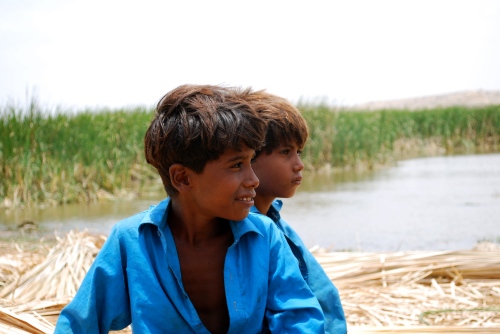
'This is the future of Pakistan, out here with no education...' Rajeed- Keenjhar site manager for WWF
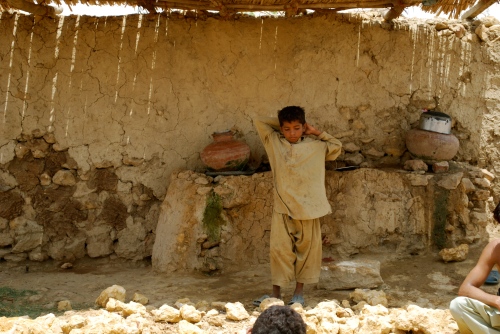
Watching men dig the pit for biofuel.
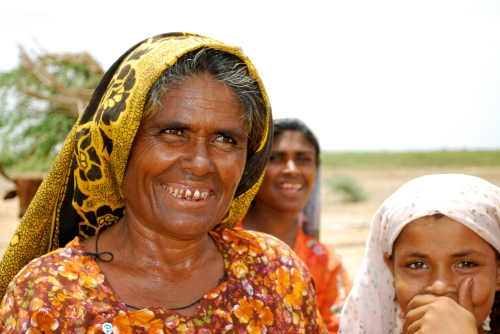
'You can take my picture now'
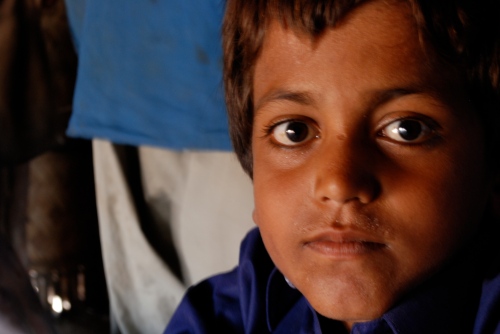
In the home with the light-bulb.
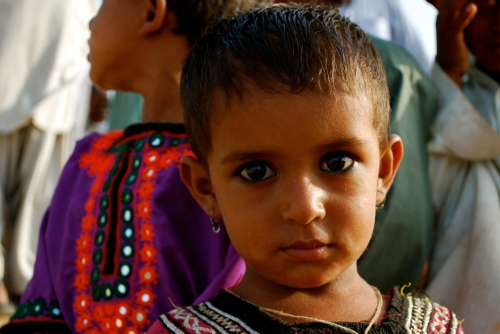
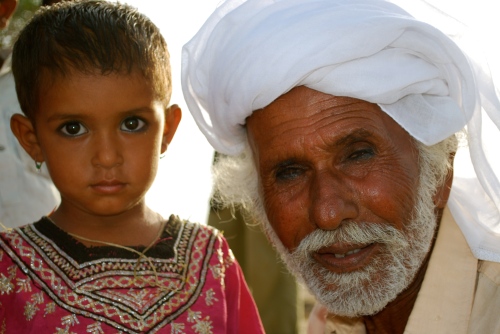
He asked me to take a photo and print it for him...









